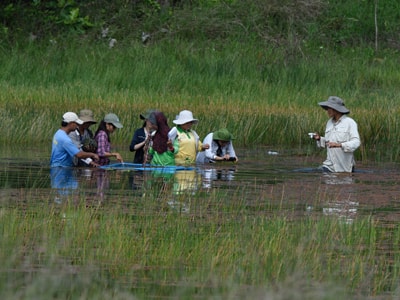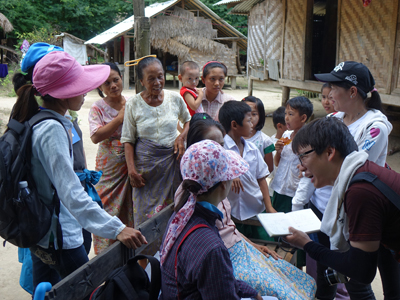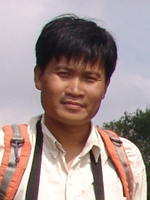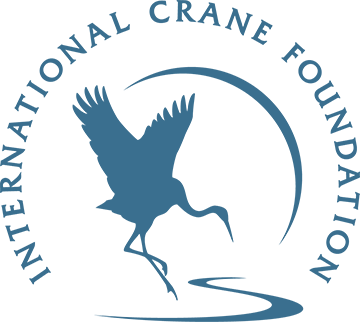
The Vulnerable Sarus Crane faces many challenges across its range in Southeast Asia, including agricultural development that threatens the remaining wetlands in the region. As a result, wetland conservation is critical for the future of Sarus Cranes and many other species. But, how do you know whether a wetland is healthy and can support cranes and other wildlife? Do you identify the plant species that are present? Study the hydrology of a wetland? Or assess how local people are using a wetland?
These are a few of the questions students and their teachers discussed at the recent Wetland Training Course in Myanmar. The annual course, organized by the International Crane Foundation and the Mekong Wetland University Network, brings together students from the Mekong River basin in Southeast Asia to learn wetland ecology and, ultimately, to develop a network of scientists that will lead future wetland conservation in Southeast Asia. The course is unique to the region, providing valuable experience to students in field techniques, and students report that the often learn more during the three-week course than a semester in the classroom.

This year, 27 students from the Mekong basin, Malaysia, and Japan traveled in Myanmar to attend the Wetland Training Course, which included classroom lectures and field practice at wetland sites near the training venue, Yezin Agricultural University. The course culminated in a five-day field study at Inle Lake, the second largest natural freshwater lake in Myanmar. Inle Lake is a breeding area for Sarus Cranes, and is well known for its wetland biodiversity, landscape beauty, and cultural heritage. The students were a fantastic group of young researchers and lecturers, full of energy, eager to learn, and enthusiastically engage in all training activities. The future of the Sarus Crane in this region is closely tied to these young wetland conservation leaders, and in their eyes we see a bright future!
Support our work to train the next generation of conservation leaders by donating to the International Crane Foundation.
 Story submitted by Dr. Tran Triet, Southeast Asia Program Coordinator for the International Crane Foundation. Click here to learn more about our work in South/Southeast Asia.
Story submitted by Dr. Tran Triet, Southeast Asia Program Coordinator for the International Crane Foundation. Click here to learn more about our work in South/Southeast Asia.
